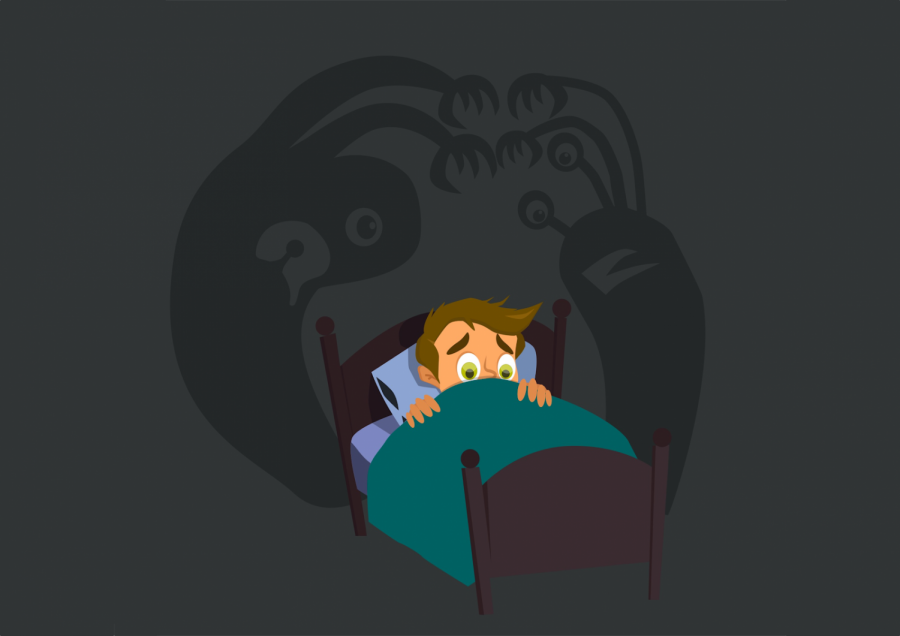Steer Away From Fears
Many people are scared of many different things, but what is a fear?
Fears are common, but what is a fear and how can we combat them?
November 20, 2020
Danger, feelings, imagination, or a mix of, all can cause unpleasant feelings, which are called fears. Verywell Mind states that a fear is natural and is a human emotion that is very powerful. Fears can be physical or physiological, meaning that some things might be a real threat. An example of this would be a clown coming up to you to potentially hurt you. On the other hand, it could be an imagined danger or threat, meaning something that you saw in a fictional movie, scaring you. Verywell Mind states that “if you have a phobia, you may experience a deep sense of dread or panic when you encounter the source of your fear,” explaining that you might have a fear of a certain place or object. Fears can even be of certain situations like getting a detention, or arguing with someone. Fears are always connected to a certain something, unlike other disorders. For example, people who have a fear of heights will, when in contact with a height, begin to show visible uncertainty such as shaking or sweating.
Types of fears
There are many different types of phobias from A to Z. According to Healthline the following are the most common types of phobias.
- Acrophobia: fear of heights
- Aerophobia: fear of flying
- Arachnophobia: fear of spiders
- Astraphobia: fear of thunder and lightning
- Autophobia: the fear of being alone
- Claustrophobia: fear of confined or crowded spaces
- Hemophobia: fear of blood
- Hydrophobia: fear of water
- Ophidiophobia: fear of snakes
- Zoophobia: fear of animals
Aside from those common fears, here is a list of more, uncommon, ones.
- Alektorophobia: fear of chickens
- Onomatophobia: fear of names
- Pogonophobia: fear of beards
- Nephophobia: fear of clouds
- Cryophobia: fear of ice or cold
Symptoms of extreme fear
If you are feeling these symptoms you might be having a reaction to a fear/phobia:
- Difficulty breathing
- Racing or pounding heart
- Chest pain or tightness
- Trembling or shaking
- Feeling dizzy or light-headed
- A churning stomach
- Hot or cold flashes; tingling sensations
- Sweating
Ways to get rid of a fear
When you have a fear, you are confronted by an uncontrollable and uncomfortable feeling. People have different phobias which require different attention. Here’s how you can get rid of your fears:
- Make a list of all of your fears and similar things that relate to it.
- Make a fear ladder, put all of the fears into a list from most scary to least frightening.
- Work your way up the ladder; if you can, expose yourself to the different categories of that fear and go next thing to the next thing.
Facing your fears is tough. Many people all over the world have fears; some are common and some are unique. Nobody enjoys being afraid, so when you can see someone’s visible distress, help them out. Check in on your friends and family to make sure everyone around you is okay.









